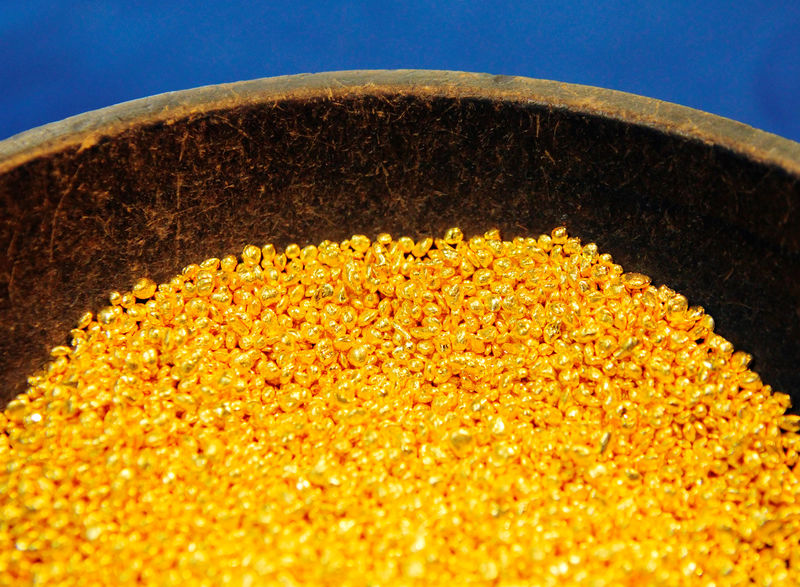Gold prices steady amid volatile markets, copper sees little relief
Gold prices steadied in Asian trade on Thursday, recouping some recent losses as increased volatility in risk-driven markets, particularly stocks, kept safe havens relatively well-bid.
Among industrial metals, copper prices rose on Thursday but recouped only a fraction of recent losses, with weak import from data further undermining the red metal.
Broader metal markets advanced, but still remained mostly rangebound amid uncertainty over the global economy and interest rates.
Spot gold rose 0.5% to $2,394.15 an ounce, while gold futures expiring in December steadied at $2,433.10 an ounce by 01:25 ET (05:25 GMT). Gold steadies, market volatility keeps safe havens in play
The yellow metal remained close to the closely watched $2,400 an ounce level, and was still less than $100 away from record highs.
Risk-driven markets logged wild swings in recent sessions, with Wall Street settling lower despite a strong start on Wednesday, while Japanese markets flitted between gains and losses on Thursday.
This kept safe havens such as gold and the Japanese yen relatively well-bid, although they did see some weakness this week as broader markets saw a brief rebound.
Gold’s outlook also appeared brighter in the face of deeper interest rate cuts by the Federal Reserve, as markets bet that worsening economic conditions will elicit such a scenario.
Other precious metals rose on Thursday, but had logged much deeper losses than gold in recent sessions. Platinum futures rose 0.8% to $930.15 an ounce, while silver futures rose 0.1% to $26.975 an ounce. Copper rises, but China woes limit recovery
Benchmark copper futures on the London Metal Exchange rose slightly to $8,760.50 a ton, while one-month copper futures rose 0.4% to $3.9440 a pound.
Both contracts were nursing steep losses from Wednesday, after data showed China’s copper imports contracted for a second straight month in July.
The reading ramped up concerns over slowing demand in the world’s biggest copper importer, especially as they were preceded by soft readings on Chinese business activity.
Source: Investing.com
